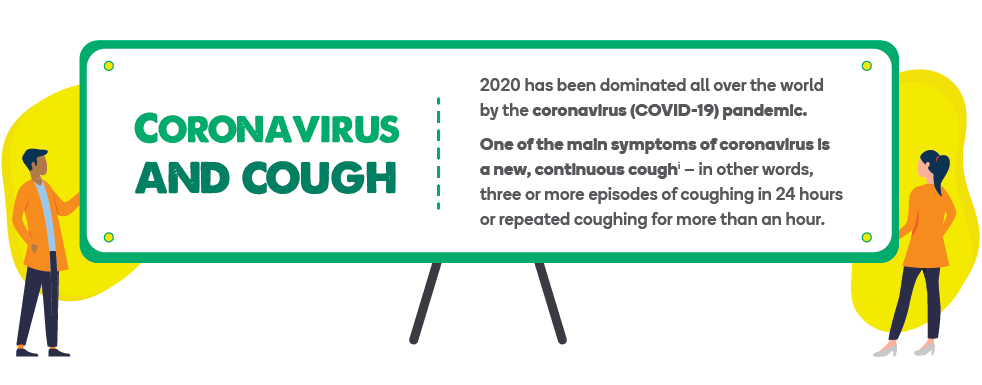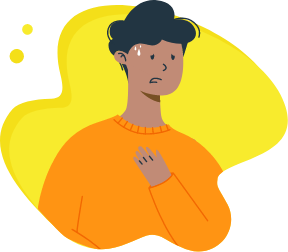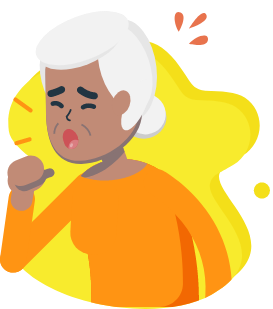
Some people who have a long-term cough might find that they are coughing more than usual.
Other common symptoms of coronavirus includei:







We need oxygen to stay alive and we get that oxygen from the air. When we breathe in, oxygen-rich air passes into the tiny balloons (called alveoli) in our lungs, where oxygen is picked up by tiny blood vessels called capillaries and carried in the blood to supply our organs.
Air needs to come into very close contact with the blood vessels for the oxygen to pass across, so the walls of the alveoli are very thin. Dust, mucus which has dripped down the back of the throat from the nose, mucus produced by the airways, germs and inflammation can all block the alveoliii. This can interfere with that gas exchange – and coughing is designed to clear anything that gets in the way of getting oxygen into the bloodii, i,ii.
However, if you cough too much, it can not only spread germs but also seriously interfere with your lifeii, ii. In many cases, there's nothing to bring up, so coughing doesn't serve a useful purposeiii. And too much coughing can also damage the delicate structures of the lung.
Every schoolchild knows that if you tap someone below the knee, their lower leg jerks out – this is known as a reflex. Cough is also caused by a reflex. Receptors on the walls of the back of the throat and airways send a signal if they're stimulated – either by something touching them or by heat, acid etc. This message is passed to a cough centre in the brain: this in turn sends messages to the muscles of the chest, diaphragm and throat instructing them to contract rapidly.
Sometimes you can suppress a reflex to an extent by actively trying, but we all know that feeling of a tickle in the back of your throat that makes it really hard not to cough.

Most coughs are 'acute' – officially an 'acute' cough is gone within three weeks. These are usually caused by viral infections like colds or flu (or, of course, coronavirus). Acute cough due to a viral infection is the most common cause of coughv and a cough due to a viral infection may last for 3- 4 weeksv.
A 'subacute' cough lasts from 3-8 weeks. These also tend to be caused by infection: some infections, like whooping cough, can cause a cough that lasts for weeks after the initial illness has settled.
A 'chronic' cough is any cough that lasts for more than 8 weeks. There is a range of causesiv, such as:








Coughs are really common. Cough is the most common reason for people to see a doctor vi and accounts for up to 2 in 5 people seeing a chest specialist as an outpatient ii.
It's important to remember that most coughs are caused by a viral infection of the upper airways. At the moment, it's essential to get tested for coronavirus if you have a new cough. However, if your test is negative, there's usually no need to see a doctor v unless you have any of the symptoms or risk factors below. Your pharmacist can help with advice and products to relieve your symptoms.
Up to 1 in 6 people taking ACE inhibitors develop a chronic cough at some pointvi. If your doctor thinks this may be the cause, they may suggest changing you to an alternative medication. It's important not to stop any regular medication without speaking to your doctor.










As we've already heard, most coughs are caused by a viral infection. That means antibiotics – which only work against bacterial infections – won't help. The exceptions are if you have any of the ‘red flags' above, feel very unwell in yourself or have other conditions that put you at higher risk of complicationsix.
But that doesn't mean you have to suffer in silence (or rather, noisily) - there's plenty you can do to relieve your symptoms in the meantime.







Lemsip Cough for Chesty Cough Oral Solution'x and LemsipMax All in Onexi both contain guaifenensin. Products containing guaifenesin are only suitable for over 12 year-olds. Always read the label.

